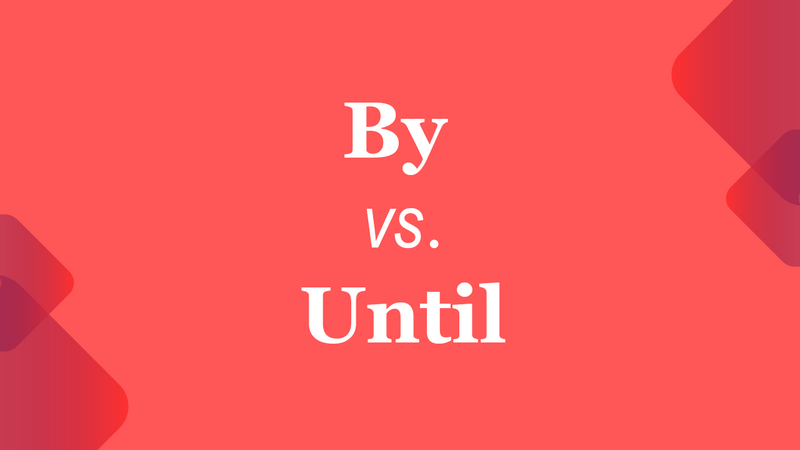In this blog post, we’re going to focus on two important English prepositions that people often confuse – “by” and “until.” While these prepositions of time can be used in similar ways, they are not interchangeable. Using them incorrectly can change the meaning of a sentence completely. Don’t worry – by the end of this post, you’ll understand how and when to use these prepositions correctly.
The Meaning of the Preposition “By”
“By” indicates at or before a certain time. For example:
- Matthew will be at the party by 4 pm.
The preposition “by” helps us know that Matthew will arrive at or before 4 pm, not after.
The Meaning of the Preposition “Until”
“Until” refers to the continuation of a situation or state up to a particular time. For example:
- Can you wait until I get there to start the celebration?
Here, “waiting” is the situation, which will continue until the moment Matthew arrives, at which point the waiting stops.
When native English speakers say “until,” they often reduce it to “till” since it’s unstressed. For example:
- I’ll wait till 4 pm but then I’ll start the celebration without you.
There’s no difference in meaning between “until” and “till.” “Till” just flows more naturally in speech.
Using “By” and “Until” for Deadlines
Both “by” and “until” are useful when discussing deadlines:
- I have to decide by Friday.
“By Friday” means “on or before Friday.” The deadline is Friday. The focus is on that endpoint.
- I have until Friday to decide.
Here, the focus is on the period of time leading up to the deadline on Friday. “Until” emphasizes that block of decision-making time.
Remember you can say “from (time) until (time)” to emphasize the start and end points. For example:
- I have from today until Friday to decide.
With “until,” the start time may not matter, but we know the deadline:
- I’ll be here til midday.
Using “By” and “Until” with Time Expressions
It’s important to note – both “by” and “until” can be used with a precise time:
- I must finish the report by 5:30 pm.
- You have until 2:15 pm to submit your application.
However, only “until” works with less precise time expressions:
- I didn’t leave the party until quite late.
“Quite late” is not an exact time, but a general time expression.
Using “Until” as a Conjunction
We can also use “until” together with a second action or event:
- I’ll be studying until dinner is ready.
- She read her book until the power went out.
In these examples, “until” acts as a conjunction – a word linking two clauses. So we cannot replace “until” with “by” – it wouldn’t make sense.
When “By” and “Until” Don’t Mean the Same Thing
It’s easy to mix up “by” and “until”:
- I’ll be home by 10 pm.
- I’ll be home until 10 pm.
These sentences have almost opposite meanings!
With “by,” I’ll get home between now and 10 pm. Come anytime after 10 pm, and I’ll be home.
With “until,” I’m home now and will stay until 10 pm. Come after 10 pm, and I won’t be home anymore.
So be careful choosing “by” or “until” correctly to avoid misunderstandings.

